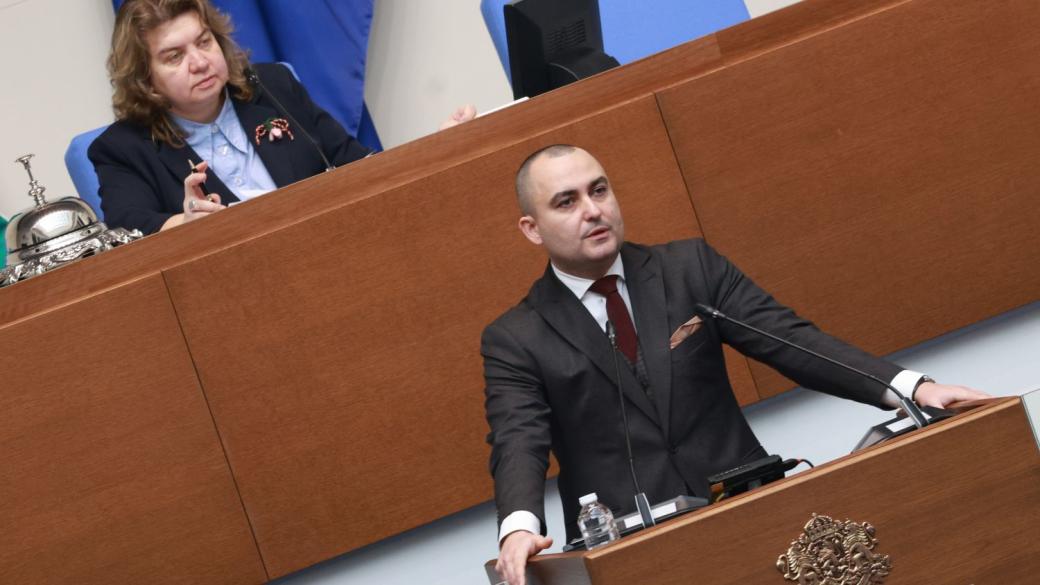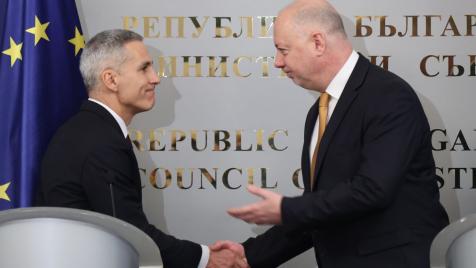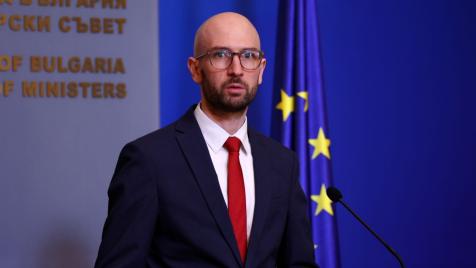Bulgaria’s 2025 draft budget calls for a double increase in concession fees for gold miners
The budget expects nearly 250 million euros in revenue from these companies next year

© ECONOMIC.BG / BTA
The Bulgarian state budget for next year includes double the revenue from concession fees for mining operations for gold and other precious metals. According to MP Alexander Ivanov (GERB-SDS), this automatically means a double increase in the fees themselves. He made this quick calculation during the parliament session on Wednesday, responding to Radostin Vassilev from MECH, who had submitted a bill to double the fees for gold mining companies.
Alexander Ivanov explained that the draft budget for 2025 sets the revenue from concession fees for precious metals at 110 million euros, and in 2026 – 237.6 million euros and it will continue to grow.
If the budget is adopted today, the Council of Ministers is obliged to review this ordinance (on fees) and the concession fees will be increased more than twice because the expected revenues in the Consolidated Fiscal Program for 2026 and beyond are over 281 million euros," Ivanov said.
Specifically, he referred to paragraph 5 of the transitional and final provisions of the draft budget, which obliges the Minister of Energy to submit to the Council of Ministers a draft regulation on these fees by the middle of the year.
By June 30, 2025, the Minister of Energy shall submit to the Council of Ministers the draft ordinance under Art. 61, para. 3 of the Mineral Resources Act, as well as proposals for amendments to the same law, including for the purpose of updating the provisions on the concession payment," reads paragraph 5.
Are these fees really doubled?
It is important to clarify that the draft budget itself does not set specific fees, but only projected revenues from them. The fee amount, according to Art. 61 of the Subsoil Resources Act, depends on the type, group and value of the subsoil resources, as well as on the specific conditions for the implementation of extraction and primary processing, and is determined on the basis of the proposed regulation by the relevant minister.
This is thought out in case the prices of traded metals on world exchanges increase. As you know, gold at the beginning of the year was trading at around $2,100 per troy ounce, now it is approaching $3,000 per troy ounce. It is quite reasonable for the Bulgarian state to receive more from the exploitation of its concessions," Ivanov said.
He added that any renegotiation of fees should occur in the context of "bilateral dialogue."
The issue of concession fees was raised during the consideration of a draft resolution that would oblige the Council of Ministers to renegotiate the current concession contracts for the extraction of gold, precious and rare metals. The proposal was submitted by Radostin Vassilev (MECH) and a group of MPs.
However, it was rejected after a re-vote with 44 votes in favor, 52 votes against and 84 abstentions.
Are the concession fees low?
According to Vassilev, mining companies in Bulgaria operate non-transparently and with loose control over extraction, as the state "does not fully exercise" its right to control mining.
The concessions and agreed fees are insignificant in size compared to global practices," said Vassilev.
The party demanded renegotiation of all current contracts for the extraction of gold and precious rare metals.
Georgi Ivanov, an MP from Revival, presented data according to which the concession fees for such extraction in Germany are 30%, in India, they are 42%, in Mexico they are 30%, and in Argentina - 35%.
However, the chairman of the budget committee, Delyan Dobrev (GERB-SDS), replied that the reality is different.
The highest concession fees in Europe are up to 4% for metals, and in Bulgaria, they are 4% - that is, we are at the ceiling of what is normal for Europe. This is determined based on how rich or poor a deposit is. Our deposits are poor - 2 grams of gold are obtained from 1 ton of ore in Bulgaria, so it does not grow like mushrooms in the forest," said Dobrev.
His comment was challenged by Krasimir Manov (MECH), who pointed out that the two have nothing in common. "You can't compare pears with plums or corn, there are metallic and non-metallic ores, there is nothing in common between them," said Manov.
Translated by Tzvetozar Vincent Iolov

 Simona Gotsova
Simona Gotsova 




